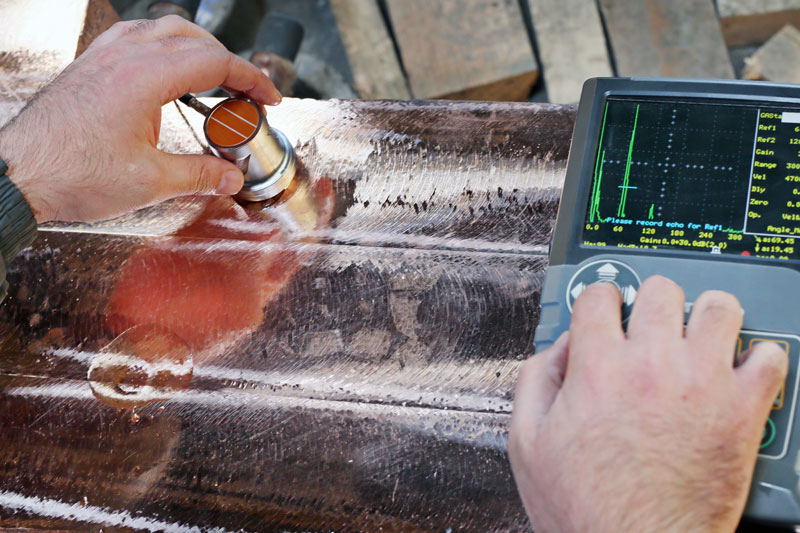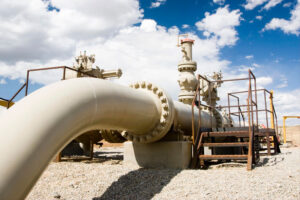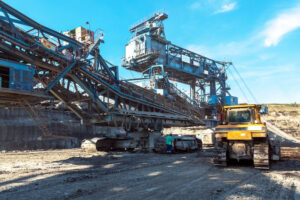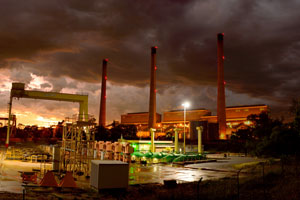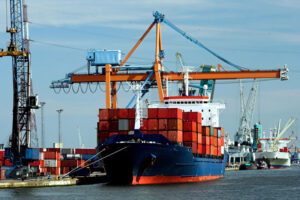What Is NDT Laboratory Testing?
NDT Laboratory Testing involves performing Non-Destructive Testing methods in a specialised laboratory setting. By using sophisticated equipment and controlled conditions, we can provide highly accurate and detailed assessments of your materials and components. This type of testing is essential for:
- Material Characterisation: Understanding the properties and behaviour of materials.
- Quality Assurance: Verifying that materials meet required specifications and standards.
- Failure Analysis: Investigating the causes of material failures without causing further damage.
Why Choose NDT Laboratory Testing?
- Precision: Laboratory conditions allow for greater control and accuracy.
- Advanced Techniques: Access to specialised equipment not always available in the field.
- Detailed Analysis: Provides comprehensive data and insights.
- Compliance: Ensures materials meet industry and regulatory standards.
Industries That Benefit from NDT Laboratory Testing
NDT Laboratory Testing is valuable across various sectors:
Oil & Gas
- Material Verification: Ensuring pipelines, valves, and equipment meet stringent material specifications.
- Corrosion Analysis: Studying corrosion samples to prevent leaks and failures.
Mining
- Equipment Testing: Assessing wear and tear on machinery components.
- Material Selection: Choosing the right materials for harsh mining environments.
Power Generation
- Component Testing: Examining turbines, generators, and boilers for material integrity.
- Failure Analysis: Investigating the causes of unexpected breakdowns.
Marine
- Structural Analysis: Testing ship components and offshore structures for durability.
- Coating Evaluation: Assessing protective coatings for effectiveness.
Engineering & Fabrication
- Quality Control: Verifying that manufactured parts meet design specifications.
- Weld Testing: Performing detailed analysis of welds to ensure strength and reliability.
Transportation
- Component Testing: Evaluating materials used in vehicles, trains, and aircraft.
- Safety Compliance: Ensuring components meet safety standards.
Construction
- Material Testing: Assessing the properties of construction materials like steel and concrete.
- Structural Integrity: Verifying the quality of critical components.
Military & Defence
- Equipment Testing: Ensuring materials used in defence equipment are reliable.
- Failure Analysis: Investigating material failures to improve safety.
How Does the NDT Laboratory Testing Process Work?
Here’s how we conduct NDT Laboratory Testing:
1. Sample Collection
- Obtain Samples: Collect material samples or components to be tested.
- Prepare Samples: Ensure samples are appropriately sized and cleaned.
2. Selecting the Right Testing Methods
We choose the most suitable NDT methods based on your needs:
- Ultrasonic Testing (UT): For detecting internal flaws.
- Radiography (RT): For visualising internal structures.
- Magnetic Particle Testing (MPI): For finding surface cracks in ferrous metals.
- Dye Penetrant Testing (DPI): For detecting surface-breaking defects.
- Hardness Testing: For measuring material hardness.
- Microscopy: For detailed examination of material structure.
- Spectroscopy: For chemical analysis of materials.
3. Performing the Tests
- Controlled Environment: Conduct tests in a lab setting to minimise variables.
- Advanced Equipment: Use specialised instruments for precise measurements.
- Skilled Technicians: Certified professionals perform and monitor the tests.
4. Data Analysis
- Interpret Results: Analyse data to identify defects, material properties, or failure causes.
- Compare Standards: Assess whether the material meets industry standards and specifications.
5. Reporting
- Detailed Reports: Provide comprehensive documentation of findings.
- Recommendations: Offer guidance on corrective actions or improvements.
- Compliance Documentation: Supply records necessary for regulatory compliance.
Advantages of NDT Laboratory Testing
- High Accuracy: Laboratory conditions enhance precision.
- Comprehensive Insights: Gain in-depth understanding of material properties.
- Customised Testing: Tailored methods to suit specific needs.
- Enhanced Reliability: Identify issues that might be missed in field testing.
FAQs
Q: Why choose laboratory testing over field testing?
A: Laboratory testing offers greater control over testing conditions, leading to more accurate and detailed results. It’s ideal when precision is critical.
Q: Can you test samples from failed components?
A: Yes, we can analyse failed components to determine the cause of failure and recommend preventative measures.
Q: What types of materials can you test in the lab?
A: We can test a wide range of materials, including metals, alloys, composites, plastics, and ceramics.
Q: How long does NDT Laboratory Testing take?
A: The duration depends on the complexity of the tests required. We’ll provide an estimated timeline when planning the testing programme.
Q: Is NDT Laboratory Testing destructive?
A: No, Non-Destructive Testing methods do not damage the samples, allowing them to be used or returned after testing.
Q: Can you help with compliance and certification?
A: Yes, we provide documentation and reports to support compliance with industry standards and regulatory requirements.
Ready to Gain In-Depth Insights into Your Materials?
NDT Laboratory Testing offers unparalleled precision and detail, helping you ensure the quality and reliability of your materials and components. Our experienced team is equipped with advanced technology to provide you with the information you need.
